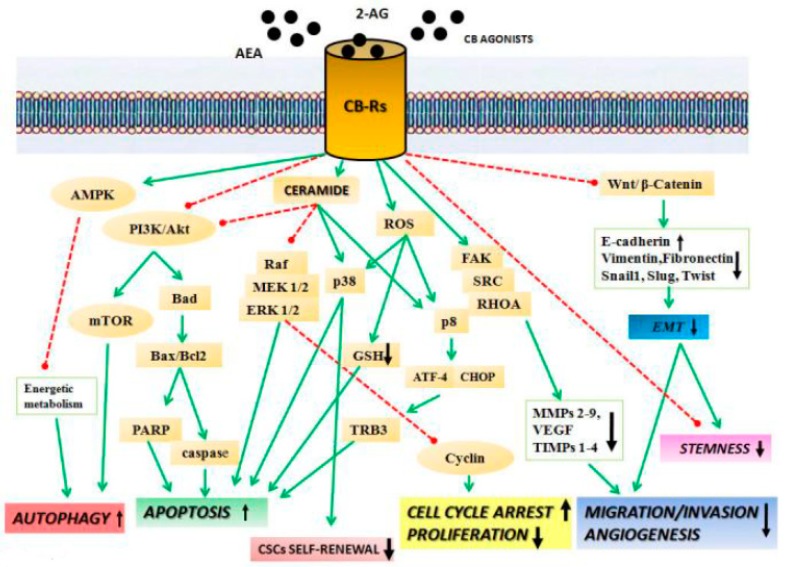Figure 1.
Schematic representation of the main anticancer molecular mechanisms mediated by cannabinoid receptors’ activation “↑, upregulation” and “↓, downregulation”. Cannabinoid receptor (CB-R) agonists inhibit cancer cell proliferation through various receptor-mediated mechanisms. CB-R agonist induces cancer cell death via apoptosis, mediated by the activation of different transcription factors (proapoptotic Bcl2 family transcription factor and mitogen-activated protein kinase (MAPK) pathway) and de novo synthesis of ceramide and reactive oxygen species (ROS) production. CBs block cancer cells’ proliferation by inhibiting extracellular signal regulated kinase (ERK) signaling. They also reduce cell migration and angiogenesis, inhibiting the focal adhesion kinase/proto-oncogene tyrosine-protein kinase Src/transforming protein RhoA (FAK/SRC/RhoA) pathway. CBs prevent cancer epithelial mesenchymal transition (EMT), inhibiting Wnt/β-catenin pathway, and induce autophagy by activation of mammalian target of rapamycin (mTOR) and AMP-activated protein kinase (AMPK) pathways. CBs can impair stemness and cancer stem cells’ (CSCs) self-renewal. (Akt (protein kinase B), PI3K (phosphoinositol-3-kinase) Raf (serine/threonine-protein kinase)).

